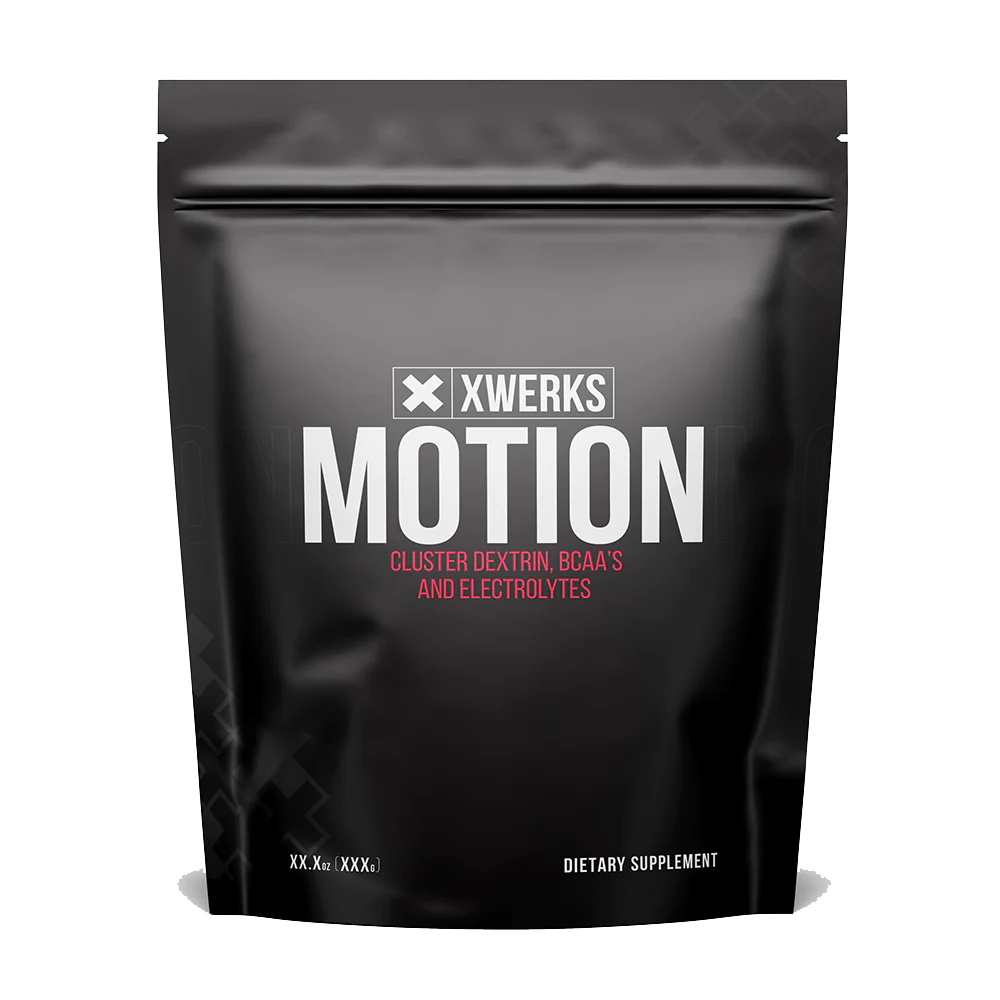Is XWERKS Motion BCAA the Missing Link to Your Gains? A Registered Dietitian Spills the Truth You Need to Hear!
FAQs
You can consume BCAAs pre, post, or intra-workout depending on your fitness goals. Some prefer to take BCAAs before or during a workout to provide their muscles with amino acids to help prevent muscle protein breakdown. Others like to take BCAAs post-workout to support muscle repair and recovery.
If you eat a whole-food diet high in protein, then you likely consume enough amino acids and may not experience further benefits by supplementing them. If you struggle to eat enough protein, BCAAs may support endurance, helping you train at a higher intensity for longer. Additionally, BCAAs may reduce muscle damage and DOMS post-workout.
BCAAs are a group of three EEAs—leucine, isoleucine, and valine— that must be consumed through the diet. They get their name from their unique molecular structure. While all EAAs are important, BCAAs are thought to play an important role in protein synthesis, muscle recovery, and preventing loss of lean mass.
BCAAs may provide an extended feeling of energy and delay the onset of muscle fatigue, enabling you to work out longer. Moreover, BCAAs might diminish muscle damage, inflammation, and DOMS post-workout. Lastly, BCAAs may aid in preserving lean muscle mass during periods of fat loss, contributing to weight loss efforts.
There are no official recommended daily requirements for BCAAs. The suggested sweet spot for leucine intake is often cited as two to three grams per day to optimize muscle building. (2) Avoid exceeding the recommended serving size on the product label. If you take protein powder or eat a high-protein diet, BCAA supplements likely won’t provide added benefits.
Research
- Wilburn, D., Machek, S., & Ismaeel, A. (2021). Highly Branched Cyclic Dextrin and its Ergogenic Effects in Athletes: A Brief Review. Journal of Exercise and Nutrition, 4(3). https://doi.org/10.53520/jen2021.103100
- Plotkin, D. L., Delcastillo, K., Van Every, D. W., Tipton, K. D., Aragon, A. A., & Schoenfeld, B. J. (2021). Isolated Leucine and Branched-Chain Amino Acid Supplementation for Enhancing Muscular Strength and Hypertrophy: A Narrative Review. International Journal of Sport Nutrition and Exercise Metabolism, 31(3), 292-301. Retrieved Nov 24, 2023, from https://doi.org/10.1123/ijsnem.2020-0356
- Ahmad SY, Friel JK, Mackay DS. Effect of sucralose and aspartame on glucose metabolism and gut hormones. Nutr Rev. 2020;78(9):725-746. doi:10.1093/nutrit/nuz099
- Bian X, Chi L, Gao B, Tu P, Ru H, Lu K. Gut Microbiome Response to Sucralose and Its Potential Role in Inducing Liver Inflammation in Mice. Front Physiol. 2017;8:487. Published 2017 Jul 24. doi:10.3389/fphys.2017.00487
- Choi SS, Danielewska-Nikiel B, Ohdan K, Kojima I, Takata H, Kuriki T. Safety evaluation of highly-branched cyclic dextrin and a 1,4-alpha-glucan branching enzyme from Bacillus stearothermophilus. Regul Toxicol Pharmacol. 2009;55(3):281-290. doi:10.1016/j.yrtph.2009.07.011














Post Comment